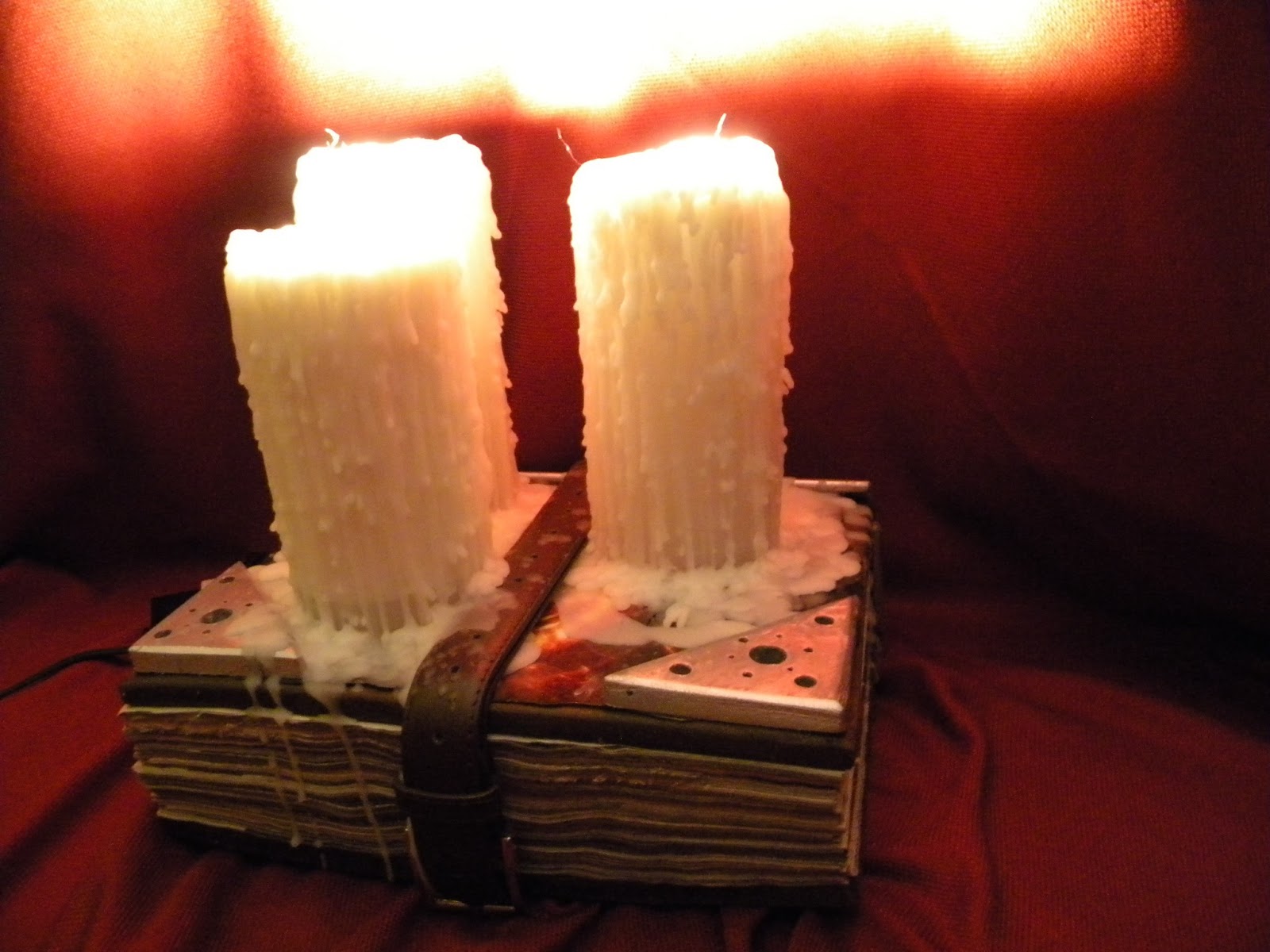Versión del blog en Español aquí
I always loved the medieval stuff and when I was playing Diablo III (unfortunately I don't have time anymore) I saw a video where one of the scenes happened in a library. There were many old books piled in stacks with big melted candles on top of them, and I really loved how medieval-looking image that was (or at least, that's what I thought). Since one of my many hobbies is to build things that I like, no matter how difficult or unrealistic the project is, I went for it, having in mind the idea from the video. As to be expected, using real candles can be dangerous and since I didn't feel like setting anything on fire, I chose to use LEDs.
I always loved the medieval stuff and when I was playing Diablo III (unfortunately I don't have time anymore) I saw a video where one of the scenes happened in a library. There were many old books piled in stacks with big melted candles on top of them, and I really loved how medieval-looking image that was (or at least, that's what I thought). Since one of my many hobbies is to build things that I like, no matter how difficult or unrealistic the project is, I went for it, having in mind the idea from the video. As to be expected, using real candles can be dangerous and since I didn't feel like setting anything on fire, I chose to use LEDs.
I went to a lamp store and bought and LED lamp that came in parts. On the one hand you had the luminosity regulator and the tension converter, and on the other hand you had the LED lights. I was going to need three of them for my experiment, but I could have used up to six of them.
In a store that sells stuff for hobbies, I bought a round candle mold and lots of bee wax. You can also find paraffin wax, but I like the smell and the touch of the first one better.
And in a hardware store, I bought an aluminium pipe, of around two centimeters in diameter, and some paint in spray.
I would have liked to have pictures of all the process, but when I decided I was going to make the lamp, I didn't know I was going to end up writing a blog like this one, so I apologize in advance if the explanation seems a little poor, even though I will try to give all the details I can remember. But of course, don't hesitate to ask as many questions as you like.
Making the candles:
The candles had to be hollow in the middle so the wire of the lamp could go through them. I cut the pipe in three different sizes that I wanted for the three candles. Then, I put every piece inside the mold, in the middle, so when I pour the wax the core would stay hollow.
You have to be specially careful while melting wax. That's why I strongly recommend to read the instructions before doing it and follow the steps thoroughly because handling the wax in an improper manner can cause very dangerous results.
Making the book:
For the cover, I used some scraps of wood I had at home and painted them with the sprays. For the pages of the book I used old newspapers that I cut with a guillotine and then glued together so they didn't move. I glued a burnt photo to give it an old, used look and smaller pieces of wood painted with silver paint. I then made three holes where the candles would go so the cables of the LEDs could be put through.
Putting everything together:
When the wax cools down, it shrinks, so even when you filled the mold all the length of the central pipe, you'll see that a couple of centimeters of the pipe protrude. This is good, because it will be the end that will fit in the holes of the book and will give the candles more stability.
We fit the candles in the holes of the book and put the cables of the LEDs through them. Since the cases of the lights were in sight, one way to cover them was to melt wax over them. This makes it look that the candles have been used and the melting wax spilled over.
The last step was to tie a belt around the book and connect the LED's to the converter.





